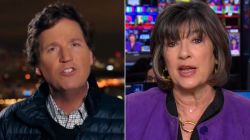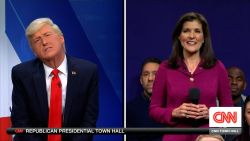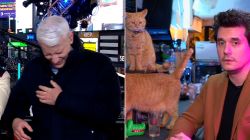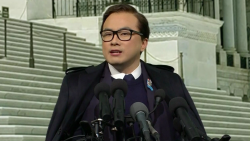A version of this article first appeared in the “Reliable Sources” newsletter. You can sign up for free right here.
On Wednesday Facebook deep-sixed four different networks of pages and accounts that were found guilty of “coordinated inauthentic behavior” – the kinds of cheating and spamming that soil the social media landscape.
One of the networks was linked to Roger Stone and Proud Boys, the far-right group that FB has banned under its hate policies.
Another network contained dozens of “fake” accounts tied to Brazilian President Jair Bolsonaro. FB said the accounts targeted journalists and political opponents of the president. Sometimes, FB said, other accounts posed as reporters.
The “two other networks that were removed were affiliated with professional firms, continuing a trend of professionalization of disinformation,” BuzzFeed’s Jane Lytvynenko reported.
So: Another day, another mass-removal of bogus social profiles that manipulated the public. This is “probably only scratching the surface of the shady political tactics being used,” Donie O’Sullivan pointed out Wednesday night. “A good reminder that what you see on Facebook might not be what it seems.”
Yes – but it’s almost impossible to know just how big the proverbial iceberg is. How much of what looks like “engagement” on the web is actually “fraud?”
The Mueller connection
Roger Stone’s very active personal Instagram account was shut down as part of this sweep. “Facebook officials said Stone, a longtime friend of Trump’s, used fake accounts and other deceptive measures to manipulate public debate,” per the WaPo’s Craig Timberg and Isaac Stanley-Becker.
This B.S. went on for years. FB’s head of security policy Nathaniel Gleicher said “we identified the full scope of this network following the recent public release of search warrants pertaining to the investigation by Special Counsel Robert Mueller in response to a joint petition from The New York Times, CNN, the Associated Press, The Washington Post, and Politico.” Wow…
Another chip off the iceberg
Earlier this week Adam Rawnsley of The Daily Beast broke this story: “Twitter just suspended 16 Twitter accounts that were part of a network of fake personas. Together they spent the last year placing about 90 op-eds in +40 different news outlets.”
Rawnsley shared some of his reporting tricks in this Twitter thread – for example, he reached out to dentists to confirm that suspicious profile pictures with funky-looking teeth were, in fact, AI-generated pictures…
>> NBC’s April Glaser reacted: I “honestly don’t know how democracy can function if we are perpetually unable to determine what is and isn’t real and are thus stymied from making meaningful political decisions…”
Donie’s big point
Donie O’Sullivan writes: Here’s the thing – the most dystopian thing. We know these accounts are fake. We know there are many, many fake accounts leaving comments on Facebook and Twitter… comments designed to provoke and enrage us…
But by knowing this, by having this be part of the public consciousness, we see many people claiming that REAL Americans on social media are fakes or bots or Russian trolls when they see them share a viewpoint they don’t agree with. The collective national paranoia this has created is corrosive.
>> BTW, O’Sullivan wrote a full story about this back in May…

























